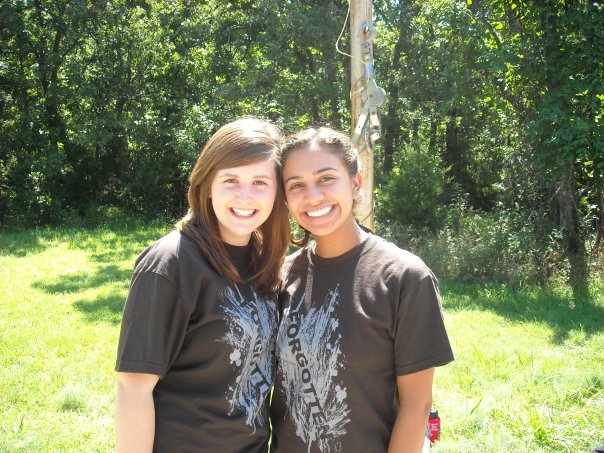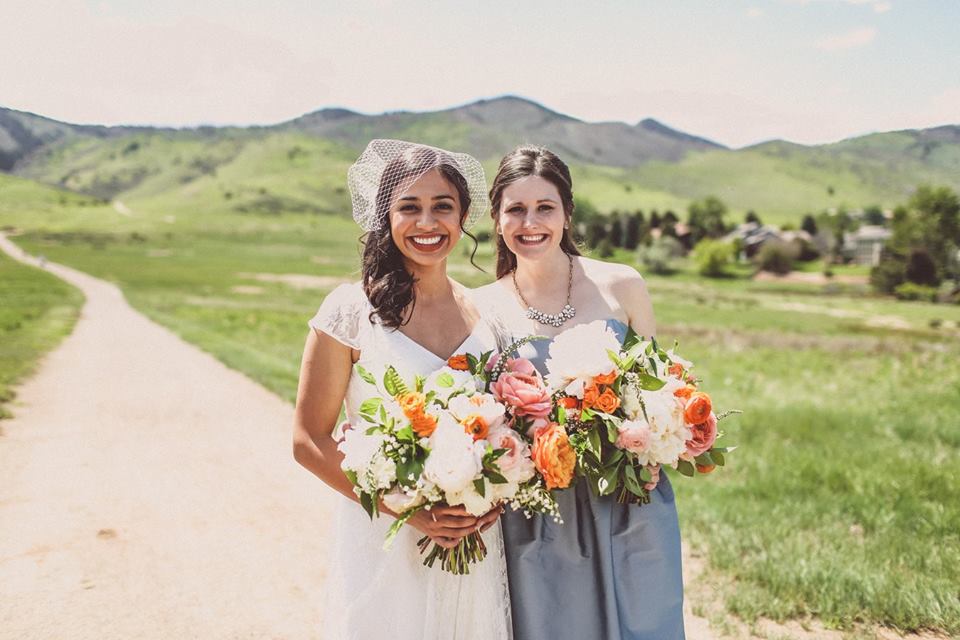Two weeks before I left my hometown in Kansas for college in California, I met a young college girl named Missy at a summer Christian camp. She attended the University of Kansas and was known for having the gift of immediately befriending people. I had heard about her reputation from others during the week, but if I admit it to myself, I probably avoided her. I was a senior, top dog at camp, getting ready to go to college. I wasn’t taking applications for friendship.
Somehow Missy and I still managed to meet at the craft table after a delicious lunch of Philly cheesesteaks and tater tots—a camp favorite. I was making my 27th friendship bracelet for the week—a sign of my robust friend group—when Missy made her move. She interrupted me with question after question as I tried to smile and make polite conversation. She ended our five-minute conversation saying, “Now we are best friends.” I don’t remember if she handed me a friendship bracelet afterwards but I wouldn’t have been surprised if she had. Friendship bracelets are the colorful cords of acceptance at summer camp.
In complete honesty, I wondered why she was trying so hard. I was moving to sunny California soon and would likely never see her again. Plus, as previously mentioned, I had filled my friend quota.
So it surprised no one more than me when I received a phone call from Missy during my first week of college. How did this girl even get my number? I answered my phone unsure of what we had to talk about. Missy began with what would become a routine of asking intentional questions. Surprisingly though, I felt encouraged, lighter somehow after our conversation. But I was still wondering why this random acquaintance was seeking me out.

The first time I met Missy. Camp t-shirts are the best, right?
The next week I received another call. Then another. Our conversations consisted of faith, friendships, prayer, missing home, and schoolwork that we dreaded. I began to note in my planner (when we still used paper planners) when Missy and I would catch up every week. This continued for months until Missy decided to come and visit me at school. She flew to California and spent the first of many weekends with me. She spoke truth into my insecurities, walked with me through suffering, and pursued a weighty, “deep and wide” kind of friendship with me that no one else had—a concept known as mentorship.
When I studied abroad in Germany my sophomore year of college, Missy prompted me to do a book study with her. We read through the Weight of Glory by C.S. Lewis and would Skype every other week to talk about the book, our faith journeys, and our social lives. In between travelling to different countries and living in a house with 50 other people (it was kind of like the Real World set in Belle’s castle), I continued to prioritize a friendship if only through technology. And our mutual commitment proved rewarding.
7 years after our very first meeting, Missy stood among my best friends in my wedding. For someone who had never lived in the same town as me, she had become my mentor and my family.

Wedding day with Missy. Did I mention I was in her wedding 6 months before this? #mentortosister
Missy’s relationship with me gave me the confidence to act as a mentor with other women looking for Godly wisdom and authentic friendship. Missy is a unique individual, whom God gifted with the ability to mentor others well. Yet, I noticed after getting to know Missy, I became the one pursuing potential mentors. It felt difficult and oftentimes unsuccessful. I had heard other friends mention similar frustrations. They talked about finding a good mentor like finding Willy Wonka’s Golden Ticket—they are rare and exclusive.
Mentorship is certainly a hot topic today as “know-it-all” Millennials are starting families and succeeding in their careers, but actually we are floundering around looking for people to advise us through trials, transitions, and questions about what a Christ-like life looks like in today’s society.
Personally, I’d love to meet more Missys who are taking the initiative to share what they’ve learned in life with other young women looking for guidance. Many of us have experiences too raw not to share and the wisdom and grace those experiences have cultivated in us—they’re too important not to share.
I’d like to create a culture where we are pursuing God so deeply that He leads us to other women who want to do the same. I learned from my experience with Missy that it’s a gift to go first and invite someone into your life to examine, learn, and empower them. It may even be scarier for you because you know the transformation that’s possible when the Spirit shows up. But, who knows how much you will change a young woman’s story by being so bold as to ask her to do life together.
What does this look like? From this experience and others, I learned that the key to mentorship is committing to the journey—which can be difficult in a Millennial culture that prides itself on keeping options open and commitments flexible.
As a mentor, what are you committing to?
Pursuing someone like a Crush. Thankfully today, we have many ways to communicate—maybe a few too many. Phone calls, texting, and emails make it possible reach out to someone you want to mentor once or twice a week. It might seem hard to be the initiator, but as mentors—people who’ve probably been mentored a few times already—you’re confident enough to follow through and pursue them like crazy.
Awkward Beginnings. Mentors are great at pushing through the awkward and getting to the hard real life stuff. Commit to asking tough questions of the other person and being a tireless listener.
Miles in the Car. Showing up and staying involved is a powerful message that only requires you being present. I wasn’t the only person Missy mentored. She has walked alongside girls from Middle School to their Senior Prom. It’s a beautiful commitment of presence and she is amazing at giving her time in loving ways.
Creative Life-on-Life Activities. Mentorship DOES NOT have to happen solely in a coffee shop talking about feelings and sipping foamed lattes. Do something that you both have an interest in: have movie nights, outdoor adventures, Sonic slushie trips, or go to the grocery store and eat cookies out of the bag all the way home. Full relationships involve more than deep conversation; they include mutual experience complete with laughter and inside jokes.
Tell Your War Stories. You cannot expect anyone—especially someone seeking wisdom from you—to trust you if you are not willing to open up about your own struggles. Without making it all about you—because it isn’t—use the ways God has worked in your life to show His great character to you. God works through your vulnerability to tell His story in your life and others. And isn’t that what mentorship really is—two people trying to find God’s story in their lives.

